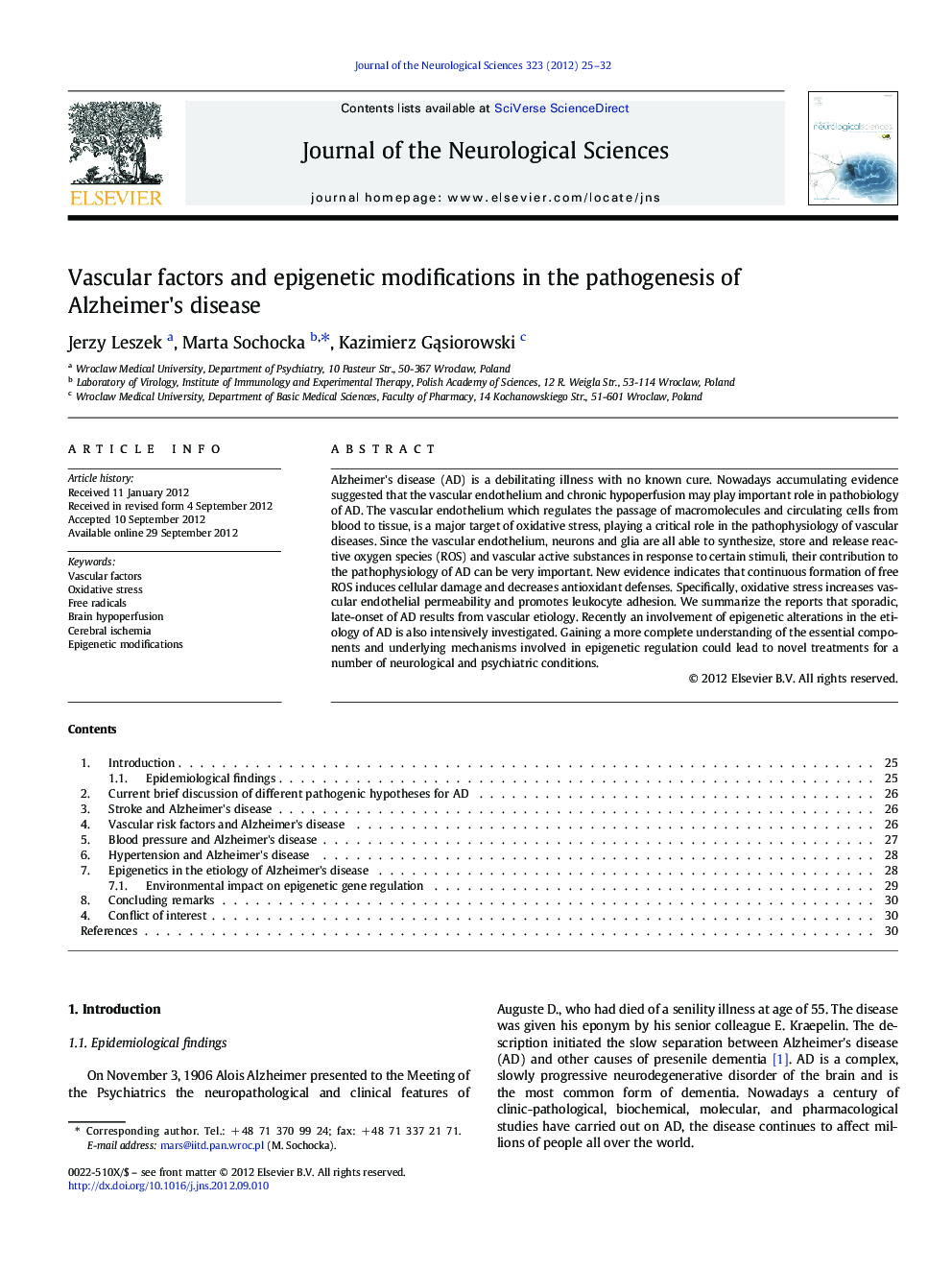| Article ID | Journal | Published Year | Pages | File Type |
|---|---|---|---|---|
| 1913791 | Journal of the Neurological Sciences | 2012 | 8 Pages |
Alzheimer's disease (AD) is a debilitating illness with no known cure. Nowadays accumulating evidence suggested that the vascular endothelium and chronic hypoperfusion may play important role in pathobiology of AD. The vascular endothelium which regulates the passage of macromolecules and circulating cells from blood to tissue, is a major target of oxidative stress, playing a critical role in the pathophysiology of vascular diseases. Since the vascular endothelium, neurons and glia are all able to synthesize, store and release reactive oxygen species (ROS) and vascular active substances in response to certain stimuli, their contribution to the pathophysiology of AD can be very important. New evidence indicates that continuous formation of free ROS induces cellular damage and decreases antioxidant defenses. Specifically, oxidative stress increases vascular endothelial permeability and promotes leukocyte adhesion. We summarize the reports that sporadic, late-onset of AD results from vascular etiology. Recently an involvement of epigenetic alterations in the etiology of AD is also intensively investigated. Gaining a more complete understanding of the essential components and underlying mechanisms involved in epigenetic regulation could lead to novel treatments for a number of neurological and psychiatric conditions.
